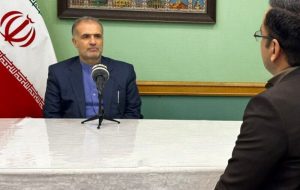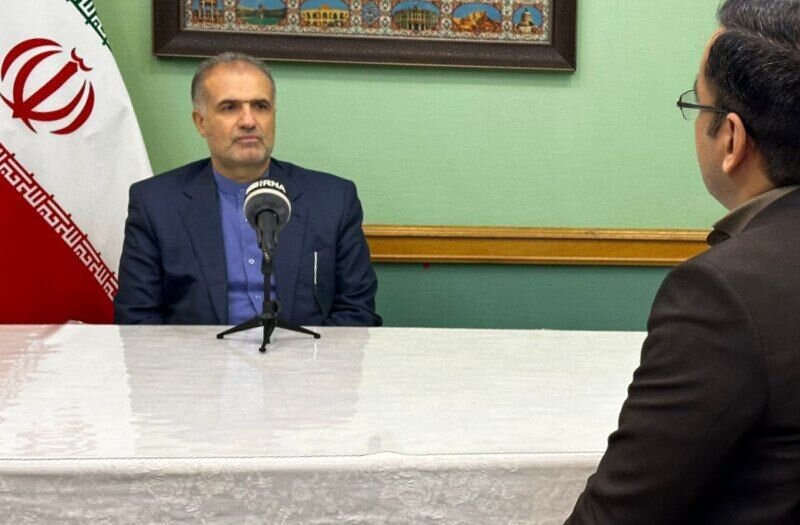Iran-Russia agreement to include new emphasis on territorial integrity
TEHRAN – Iranian Ambassador to Russia, Kazem Jalali, announced on Saturday that the new comprehensive strategic partnership agreement between Iran and Russia explicitly includes respect for each other’s territorial integrity. During an interview with an Iranian news agency, Jalali emphasized, “We expect our partner countries to respect our territorial integrity,” highlighting that this commitment is


TEHRAN – Iranian Ambassador to Russia, Kazem Jalali, announced on Saturday that the new comprehensive strategic partnership agreement between Iran and Russia explicitly includes respect for each other’s territorial integrity.
During an interview with an Iranian news agency, Jalali emphasized, “We expect our partner countries to respect our territorial integrity,” highlighting that this commitment is clearly outlined in Article Three of the agreement which is poised to be signed later this month.
This clause underscores the importance of maintaining sovereign rights and national independence, which was absent in the 2001 agreement between Tehran and Moscow.
This reassurance follows several years of concerning remarks by Russian officials regarding three Iranian islands in the Persian Gulf. In July 2023, a statement released during a Russia-Persian Gulf Cooperation Council meeting appeared to question Iran’s sovereignty over the islands of Abu Musa, and the Greater and Lesser Tunbs. This immediately prompted Iran to summon the Russian ambassador for a swift diplomatic response.
Concerns further intensified in December 2023 when Russia seemed to endorse the UAE’s baseless claims during the 6th Russian-Arab Cooperation Forum, triggering strong objections from Iranian officials.
They reiterated Iran’s indisputable right to these territories, with the late Foreign Minister Hossein Amirabdollahian and other prominent figures in Tehran affirming the islands’ historical and legal status as integral parts of Iran.
A new era of cooperation
Revealing new details about the upcoming agreement, Ambassador Jalali stated that it comprises a preamble and 47 articles.
It is due to succeed the comprehensive cooperation agreement signed in 2001, which was ratified by the Iranian Parliament, expired in 2021, and was extended until 2026.
“Today’s relations have significantly expanded compared to 24 years ago, necessitating an update,” Jalali noted.
According to the ambassador, Iran prepared the draft, and after consultations and revisions with Russia, finalized it over approximately three years.
Jalali highlighted the extensive reach of the agreement, noting that in addition to emphasizing territorial integrity, it encompasses political and economic interactions, regional initiatives, and both bilateral and multilateral efforts.
Additionally, the agreement addresses energy cooperation, reflecting the significant energy resources of both nations.
When questioned about the similarity between this agreement and Russia’s recent security pacts with Belarus and North Korea, Jalali clarified, “This agreement is different; Russia has defined partnerships in certain areas with those countries that we are not deeply involved in.”
He stressed Iran’s commitment to independence and self-reliance, stating, “We are not keen on entering into bloc politics.”
Jalali concluded by noting that the agreement would be submitted to the Iranian Parliament for approval, following the process adopted in 2001.
This contrasts with the Iran-China 25-year agreement, signed in 2021, which was not subject to parliamentary approval, making the pact with Russia notably different in terms of legislative oversight and public disclosure.
Iran’s President Masoud Pezeshkian is scheduled to visit Russia on January 17 to hold talks with Russian President Vladimir Putin and other high-ranking officials to sign the Comprehensive Strategic Partnership Agreement, further solidifying the ties between the two nations.
